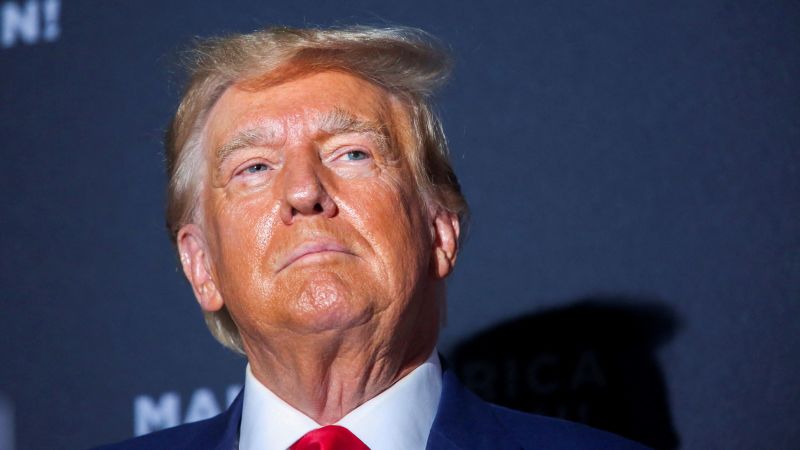President Donald Trump has requested that the trial for the criminal election subversion case against him be set for April 2026, according to CNN. This breaking story will be updated with more information.
Unveiling Trump’s Bold Proposal: A Game-Changing Trial for Federal Election Subversion in April 2026
In a stunning turn of events, former President Donald J. Trump has announced a bold proposal that could potentially reshape the American political landscape. Trump, known for his controversial tenure in the White House, has set his sights on a game-changing trial for federal election subversion, scheduled to take place in April 2026. This unprecedented move has sparked intense debate and speculation among legal experts, politicians, and the general public.
The proposal, unveiled by Trump during a recent press conference, aims to address the allegations of election subversion that have plagued his presidency and subsequent years. Trump, who has consistently claimed that the 2020 presidential election was marred by widespread fraud, intends to use this trial as a platform to present evidence supporting his claims and seek justice for what he perceives as a stolen election.
The trial, if it comes to fruition, would mark a significant departure from the traditional legal processes surrounding election disputes. While election challenges are not uncommon, they are typically resolved through established channels, such as the courts or electoral boards. Trump’s proposal, however, seeks to elevate the issue to a federal level, with the aim of exposing what he believes to be a systemic problem in the American electoral system.
Critics argue that Trump’s proposal is nothing more than a desperate attempt to cling to power and undermine the legitimacy of the democratic process. They contend that his claims of election fraud have been thoroughly debunked and that his refusal to accept the results of the 2020 election has already done irreparable damage to the nation’s democratic institutions.
Supporters, on the other hand, view Trump’s proposal as a necessary step towards uncovering the truth and ensuring the integrity of future elections. They argue that the allegations of fraud should not be dismissed without a thorough investigation, and that a trial of this magnitude would provide a platform for presenting evidence that has thus far been overlooked or dismissed.
The potential implications of Trump’s proposal are far-reaching. If the trial were to proceed, it would undoubtedly captivate the nation’s attention and dominate the political discourse for months, if not years, to come. The outcome of such a trial could have profound consequences for the American political landscape, potentially eroding public trust in the electoral process or vindicating Trump’s claims of fraud.
However, it is important to note that Trump’s proposal is not without legal and logistical challenges. The Constitution grants states the authority to administer their own elections, and federal intervention in such matters is typically limited. Additionally, the burden of proof lies with the accuser, and Trump would need to present compelling evidence to substantiate his claims of election subversion.
As the proposed trial is still in its early stages, many details remain unclear. It is uncertain how Trump intends to navigate the legal hurdles and secure the necessary support to proceed with his plan. Furthermore, the potential impact on the American public and the political landscape is difficult to predict, as the trial would undoubtedly be a highly polarizing and contentious affair.
In conclusion, Trump’s bold proposal for a game-changing trial on federal election subversion in April 2026 has ignited a firestorm of debate and speculation. While critics argue that it is a desperate attempt to undermine the democratic process, supporters view it as a necessary step towards uncovering the truth. As the nation awaits further developments, the potential implications of such a trial on the American political landscape remain uncertain. Only time will tell whether this proposal will be a game-changer or a mere footnote in the annals of American history.








